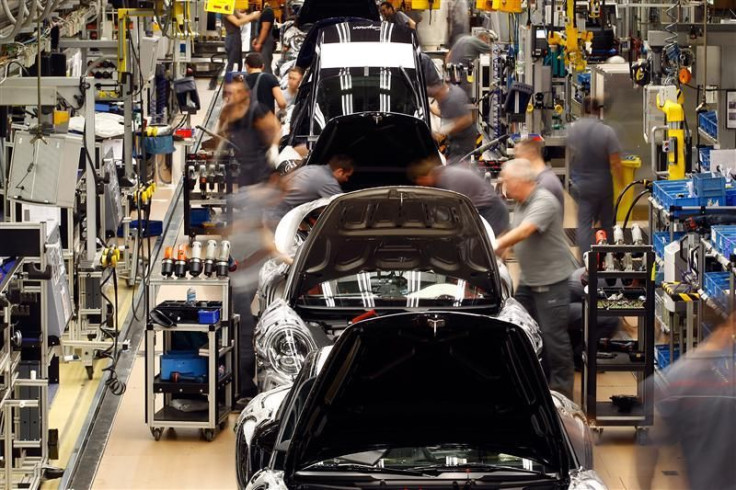Europe's Core Economies Hampered By Weak Periphery

Europe's strongest economies are being dragged down by the recessions in weaker European countries, some of which are expected to join beleaguered Greece in seeking a bailout.
Germany, the continent's No. 1 economy, reported Tuesday that industrial orders fell by 1.7 percent in June from May, a greater-than-expected drop. The main reason for the large decline was a 4.9 percent fall in orders from nations in the 17-member euro zone.
Among those nations is Italy, which reported Tuesday that its economy contracted in the April-through-June period for the fourth straight quarter. Gross domestic product fell 2.5 percent from the year-earlier quarter and was down 0.7 percent from the previous quarter.
The sharp fall in GDP in Q2 highlights the huge economic and fiscal problems that Italy faces," Capital Economics said in a note. "Although the pressure from the markets has recently eased, we still think that it is only a matter of time before Italy is forced to seek a sovereign bailout."
European countries that are not in the monetary union are also struggling. Britain, for example, is going through a double-dip recession and reported Tuesday that its manufacturing fell 2.9 percent in June, its steepest decline since November 2008.
Industrial output dropped 4.3 percent compared to the year earlier period -- its lowest level in 20 years.
"Although the underlying strength of the industrial sector is particularly hard to judge at present, the big picture is that production looks likely to remain on a downward trend as the euro-zone crisis continues to take its toll on demand," Samuel Tombs, an analyst with Capital Economics, said in a note.
© Copyright IBTimes 2024. All rights reserved.












